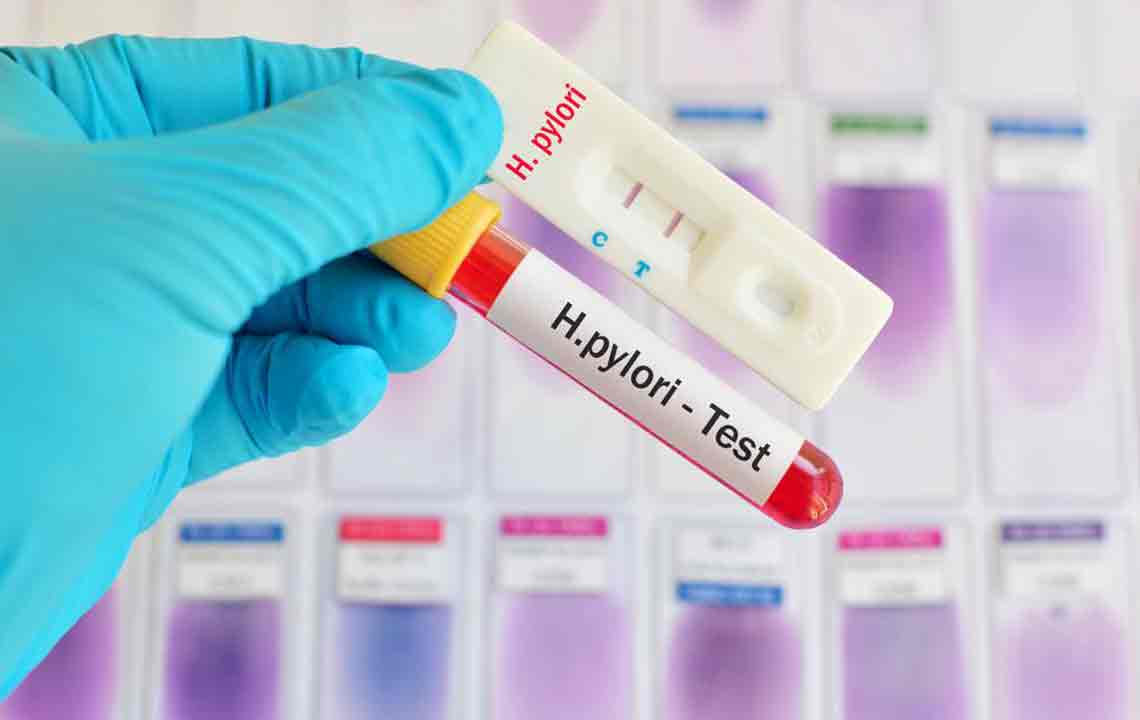Understanding the Treatment of a Helicobacter Pylori Infection
Doctors usually treat Helicobacter pylori infections with a minimum of two distinct antibiotics taken simultaneously. This treatment for Helicobacter pylori is to help prevent the concerned bacteria from building a resistance to a specific antibiotic. It’s a crucial feature of the treatment for Helicobacter pylori, and your doctor can also recommend or prescribe an acid-controlling drug or suppressant to help heal your stomach lining. It’s been found that doctors may also recommend patients to undergo tests for Helicobacter pylori at least four to five weeks post-treatment. If these tests show any unfortunate outcome of the treatment, you may have to undergo a further round of diagnosis with a different synthesis of antibiotic medications.

There are many suppressants in the treatment for Helicobacter pylori. The basic thing is not to self-medicate as that can make the situation worse.
PPIs or proton pump inhibitors
These drugs impede acid from getting generated in your stomach. Prilosec and Omeprazole are some common PPIs examples. Others include Nexium or esomeprazole, Prevacid or lansoprazole and Protonix and pantoprazole.
H-2 Histamine blockers
The set of medications prevent or block the histamine substance, which triggers production of acid. Noted examples are Tagamet or cimetidine and Zantac or Ranitidine.
Bismuth Subsalicylate modality
It’s more commonly called Pepto-Bismol. The popular drug functions by the enveloping the ulcer and shielding it against stomach acid.
Diagnosis is a crucial aspect of treatment for Helicobacter Pylori. The procedures and tests used to determine the existence of the infection entail a vast gamut.
Blood test
Blood sample analysis may reveal clinching evidence or previous or active Helicobacter pylori infection in the body. However, stool and breath tests are better to detect active infections as compared to blood tests.
Stool test
It’s known as stool antigen examination, which forms a part of a laboratory test. It looks for antigens or foreign proteins associated with the infection in the excreta. It’s much akin to breath test where bismuth sub-salicylate and PPIs can affect the test results. Hence, your doctor asks you to stop consuming them for at least two weeks before the test.
Breath test
When you undergo a breath test, the doctor gives you a pudding, liquid or a pill to swallow. It entails tagged ingredients of carbon molecules. For those having this infection, you need to know that your body releases carbon when the solution disseminates your stomach. The human body absorbs and contains this carbon before expelling it as you exhale. You will find patients exhale into a container or bag and the doctor implements a special tool to detect the ingrained carbon molecules. It’s important to remember that acid-controlling or suppressing drug and antibiotics together can interfere or hinder the accuracy of a breath test. The medical experts ask you not to take these medications for two weeks before the rest. The test caters to both children and adults.
Scope test
Often the more overlooked amongst other tests, scope tests entail a lot of importance in treatment for Helicobacter pylori. The doctor sedates you for the test, which is also called upper endoscopy test. During this test, your surgeon threads a flexible and long tube armored with an endoscope (tiny camera) down the esophagus and throat, and into the duodenum and stomach. It’s a pivotal instrument as that allows the surgeon to observe any irregularities or problems in the upper digestive area or tract.
The doctor can then remove or locate the tissue samples. This process is called a biopsy. The samples are sent to the lab for analysis. You need to bear in mind that this test isn’t usually recommended exclusively to diagnose this infection. The main reason is that it is invasive and cumbersome than a stool or breath test. However, if the extent of Helicobacter pylori infection is huge, then the doctors incorporate this method to diagnose the ulcers that shape up in the area. They also use it to rule out or treat other digestive problems/conditions.
Any successful treatment for Helicobacter pylori necessitates a thorough understanding of its symptoms. The most startling fact about Helicobacter Pylori infection is that it will never have any symptom or sign. The reason is still unclear, but some people may also be born with more inherent resistance to the perils of Pylori. However, towards the end, symptoms do crop up, and they include nausea, burning pain or ache in your abdominal region, abdominal pain that worsens with an empty stomach, frequent burping, appetite loss, bloating and unintentional loss of weight. You often contract this infection in childhood. Your living conditions are central to the causes and spread of the infection. Living in congested conditions and living without clean water or a reliable supply of it aggravates the problem.

